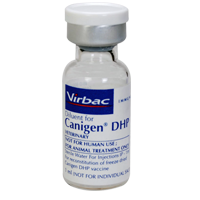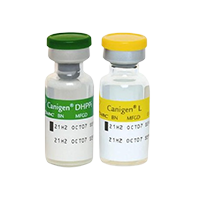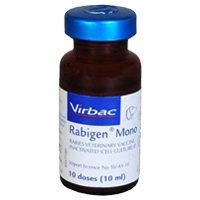
Canine leishmaniasis : how to protect my dog?
Leishmaniasis is a potentially mortal disease in dogs ; humans can also be affected by this illness. Every year, 1.5 to 2 million new cases of human leishmaniasis are reported worldwide *.
The transmission of leishmaniasis occurs via small flying insects, Phlebotominae, which feed on blood like mosquitoes.
Parasites are transmitted by phlebotominae bites, from an infested animal to a non-infested animal. To fight against canine leishmaniasis, experts recommend combining 2 control methods : pest control and vaccine protection.
Leishmaniasis occurs in a large southern third of France : Phlebotominae are present in at least 25 departments, and their period of activity extends from April to October.
In areas at risk, it is essential to protect your dog from Phlebotominae bites. This goes through different means :
-
Regularly apply insect repellant, effective against Phlebotominae
-
Eliminate the Phlebotominae in your home. Fans and interior mosquito diffusers help to reduce the risk of insects indoors. The small size of Phlebotominae generally allows them to pass through the grills of mosquito nets. To increase their effectiveness, spray them with an insecticide.
-
Bring your dog home before dusk, when Phlebotominae are particularly active.
Dogs are the only species to benefit from a vaccine against leishmaniasis. The vaccine can be done from the age of 6 months, independentally from the usual vaccines.
Even if it does not completely eliminate the risk of contamination, it allows to better protect dogs living in an area at risk, as well as those that will stay a few weeks. Vaccination reduces the risk of the dog developing the disease. More than 500,000 dogs have already been vaccinated against leishmaniasis in Europe.
For more information, ask your vet for advice.
The disease manifests itself in various symptoms : skin problems, weight loss, fatigue, lameness, diarrhea, eye problems…etc. There are serological tests to detect the disease. Once detected, your dog will have to go through numerous tests as to better know his status in the face of the disease. To find out if your dog is sick, your vet can do a screening test.
*www.pasteur.fr/fr/centre-medical/fiches-maladies/leishmaniose



